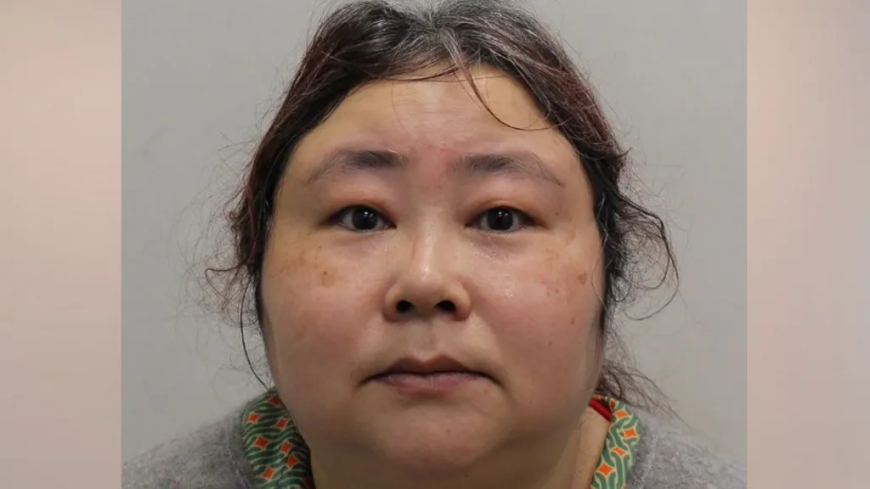World’s largest seizure: UK court convicts Chinese woman in $6.7bn crypto fraud

A Chinese national has been convicted in one of the world’s largest cryptocurrency frauds, following what police described as the single largest crypto seizure globally, after the Metropolitan Police recovered 61,000 bitcoin worth more than £5 billion ($6.7 billion).
As reported by BBC on Tuesday, Qian Zhimin, 47, also known as Yadi Zhang, pleaded guilty on Monday at Southwark Crown Court to illegally acquiring and possessing cryptocurrency linked to a massive investment scam that defrauded more than 128,000 victims in China between 2014 and 2017.
Her conviction follows a seven-year global probe into a money-laundering network that spanned multiple jurisdictions, after police received a tip-off about suspicious transfers of criminal assets.
Detective Sergeant Isabella Grotto, who led the investigation, said the complex case required “extensive cooperation with international partners” to track Qian, who had been “evading justice for five years” before her arrest in the UK using false documents.
The Met said Qian fled China and attempted to launder stolen funds by purchasing properties in Britain. Her solicitor, Roger Sahota of Berkeley Square Solicitors, said, “By pleading guilty today, Ms Zhang hopes to bring some comfort to investors who have waited since 2017 for compensation… There are more than sufficient funds available to repay their losses.”
Another suspect, Malaysian national Seng Hok Ling, also pleaded guilty on Tuesday to money laundering on Qian’s behalf. Confiscation proceedings have begun to retrieve more than £16.2 million from him, with the amount to be adjusted according to bitcoin rates before sentencing in November.
The Met described the case as “a landmark in crypto-related crime investigations,” underscoring how digital assets are increasingly used to conceal illicit wealth.
Bitcoin and other cryptocurrencies are increasingly being used by organised criminals to disguise and transfer assets,” said Deputy Chief Crown Prosecutor Robin Weyell.
“This case, involving the largest cryptocurrency seizure in the UK, illustrates the scale of criminal proceeds available to those fraudsters.”
Qian had earlier been linked to Jian Wen, a former London takeaway worker jailed for six years and eight months in 2024 for helping launder part of the proceeds.
Bitcoin and other cryptocurrencies are increasingly being used by organised criminals to disguise and transfer assets,” said Deputy Chief Crown Prosecutor Robin Weyell.
“This case, involving the largest cryptocurrency seizure in the UK, illustrates the scale of criminal proceeds available to those fraudsters.”
Qian had earlier been linked to Jian Wen, a former London takeaway worker jailed for six years and eight months in 2024 for helping launder part of the proceeds.
Wen reportedly went from living above a restaurant to a multi-million-pound rented home in north London, and had also purchased two Dubai properties worth over £500,000. The Met said it seized over £300 million in bitcoin from Wen.
UK authorities are now considering whether to retain the seized funds, pending legal processes.
The case comes amid recent reforms to crime legislation designed to make it easier for UK agencies to seize, freeze, and recover digital assets from suspected criminals.
Qian’s conviction adds to a growing list of major crypto-related crimes that have rocked the global financial system.
In February 2025, the Bybit hack saw the North Korean state-backed Lazarus Group steal about $1.5 billion in Ethereum from the Dubai-based exchange by exploiting flaws in its multi-signature wallet system. The stolen funds are believed to be laundered to support North Korea’s military operations.
Similarly, the infamous OneCoin pyramid scheme defrauded investors worldwide of an estimated $4.4 billion through fake cryptocurrency sales between 2014 and 2017. Although several key operators have been arrested, the alleged mastermind, Ruja Ignatova, remains at large and on international wanted lists.
UK Security Minister Dan Jarvis hailed Qian’s conviction as a “clear signal” that Britain is not a haven for money launderers.
“Money laundering erodes trust, undermines our economy, and fuels the rise of serious organised crime,” Jarvis said.
Qian remains in custody and is scheduled to be sentenced on November 10, alongside Seng Hok Ling, marking the final chapter in what prosecutors call “the single largest cryptocurrency seizure in the world.”

 admin
admin 


